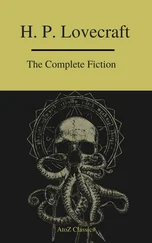And what did God do? First of all He left us conscience, the sense of right and wrong: and all through history there have been people trying (some of them very hard) to obey it. None of them ever quite succeeded. Secondly, He sent the human race what I call good dreams: I mean those queer stories scattered all through the heathen religions about a god who dies and comes to life again and, by his death, has somehow given new life to men. Thirdly, He selected one particular people and spent several centuries hammering into their heads the sort of God He was—that there was only one of Him and that He cared about right conduct. Those people were the Jews, and the Old Testament gives an account of the hammering process.
Then comes the real shock. Among these Jews there suddenly turns up a man who goes about talking as if He was God. He claims to forgive sins. He says He has always existed. He says He is coming to judge the world at the end of time. Now let us get this clear. Among Pantheists, like the Indians, anyone might say that he was a part of God, or one with God: there would be nothing very odd about it. But this man, since He was a Jew, could not mean that kind of God. God, in their language, meant the Being outside the world, who had made it and was infinitely different from anything else. And when you have grasped that, you will see that what this man said was, quite simply, the most shocking thing that has ever been uttered by human lips.
One part of the claim tends to slip past us unnoticed because we have heard it so often that we no longer see what it amounts to. I mean the claim to forgive sins: any sins. Now unless the speaker is God, this is really so preposterous as to be comic. We can all understand how a man forgives offences against himself. You tread on my toes and I forgive you, you steal my money and I forgive you. But what should we make of a man, himself unrobbed and untrodden on, who announced that he forgave you for treading on other men’s toes and stealing other men’s money? Asinine fatuity is the kindest description we should give of his conduct. Yet this is what Jesus did. He told people that their sins were forgiven, and never waited to consult all the other people whom their sins had undoubtedly injured. He unhesitatingly behaved as if He was the party chiefly concerned, the person chiefly offended in all offences. This makes sense only if He really was the God whose laws are broken and whose love is wounded in every sin. In the mouth of any speaker who is not God, these words would imply what I can only regard as a silliness and conceit unrivalled by any other character in history.
Yet (and this is the strange, significant thing) even His enemies, when they read the Gospels, do not usually get the impression of silliness and conceit. Still less do unprejudiced readers. Christ says that He is ‘humble and meek’ and we believe Him; not noticing that, if He were merely a man, humility and meekness are the very last characteristics we could attribute to some of His sayings.
I am trying here to prevent anyone saying the really foolish thing that people often say about Him: ‘I’m ready to accept Jesus as a great moral teacher, but I don’t accept His claim to be God.’ That is the one thing we must not say. A man who was merely a man and said the sort of things Jesus said would not be a great moral teacher. He would either be a lunatic—on a level with the man who says he is a poached egg—or else he would be the Devil of Hell. You must make your choice. Either this man was, and is, the Son of God: or else a madman or something worse. You can shut Him up for a fool, you can spit at Him and kill Him as a demon; or you can fall at His feet and call Him Lord and God. But let us not come with any patronising nonsense about His being a great human teacher. He has not left that open to us. He did not intend to.
We are faced, then, with a frightening alternative. This man we are talking about either was (and is) just what He said or else a lunatic, or something worse. Now it seems to me obvious that He was neither a lunatic nor a fiend: and consequently, however strange or terrifying or unlikely it may seem, I have to accept the view that He was and is God. God has landed on this enemy-occupied world in human form.
And now, what was the purpose of it all? What did he come to do? Well, to teach, of course; but as soon as you look into the New Testament or any other Christian writing you will find they are constantly talking about something different—about His death and His coming to life again. It is obvious that Christians think the chief point of the story lies there. They think the main thing He came to earth to do was to suffer and be killed.
Now before I became a Christian I was under the impression that the first thing Christians had to believe was one particular theory as to what the point of this dying was. According to that theory God wanted to punish men for having deserted and joined the Great Rebel, but Christ volunteered to be punished instead, and so God let us off. Now I admit that even this theory does not seem to me quite so immoral and so silly as it used to; but that is not the point I want to make. What I came to see later on was that neither this theory nor any other is Christianity. The central Christian belief is that Christ’s death has somehow put us right with God and given us a fresh start. Theories as to how it did this are another matter. A good many different theories have been held as to how it works; what all Christians are agreed on is that it does work. I will tell you what I think it is like. All sensible people know that if you are tired and hungry a meal will do you good. But the modern theory of nourishment—all about the vitamins and proteins—is a different thing. People ate their dinners and felt better long before the theory of vitamins was ever heard of: and if the theory of vitamins is some day abandoned they will go on eating their dinners just the same. Theories about Christ’s death are not Christianity: they are explanations about how it works. Christians would not all agree as to how important those theories are. My own church—the Church of England—does not lay down any one of them as the right one. The Church of Rome goes a bit further. But I think they will all agree that the thing itself is infinitely more important than any explanations that theologians have produced. I think they would probably admit that no explanation will ever be quite adequate to the reality. But as I said in the preface to this book, I am only a layman, and at this point we are getting into deep water. I can only tell you, for what it is worth, how I, personally, look at the matter.
In my view the theories are not themselves the thing you are asked to accept. Many of you no doubt have read Jeans or Eddington. What they do when they want to explain the atom, or something of that sort, is to give you a description out of which you can make a mental picture. But then they warn you that this picture is not what the scientists actually believe. What the scientists believe is a mathematical formula. The pictures are there only to help you to understand the formula. They are not really true in the way the formula is; they do not give you the real thing but only something more or less like it. They are only meant to help, and if they do not help you can drop them. The thing itself cannot be pictured, it can only be expressed mathematically. We are in the same boat here. We believe that the death of Christ is just that point in history at which something absolutely unimaginable from outside shows through into our own world. And if we cannot picture even the atoms of which our own world is built, of course we are not going to be able to picture this. Indeed, if we found that we could fully understand it, that very fact would show it was not what it professes to be—the inconceivable, the uncreated, the thing from beyond nature, striking down into nature like lightning. You may ask what good it will be to us if we do not understand it. But that is easily answered. A man can eat his dinner without understanding exactly how food nourishes him. A man can accept what Christ has done without knowing how it works: indeed, he certainly would not know how it works until he has accepted it.
Читать дальше












